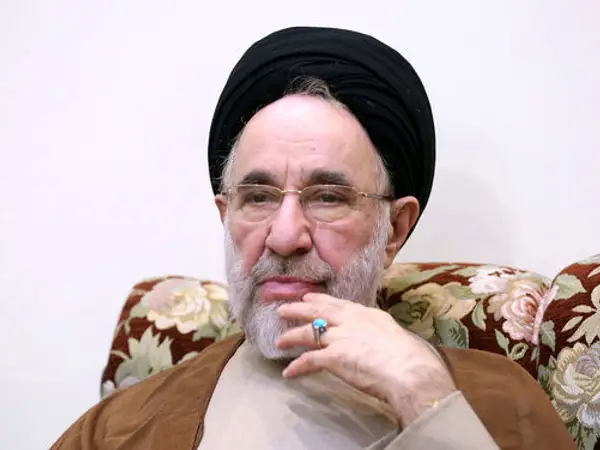Iran’s former reformist President Mohammad Khatami on Sunday called on the government to meet the people's demands and prevent a revolutionary change.
Khatami issued a long statement, as a few other reformists also issued their statements just days before the 44th anniversary of the Islamic Republic on February 11.
During the past days several reformist, moderate and conservative politicians in Iran, including former president Hassan Rouhani, Expediency Council member Mohammad-Reza Bahonar, former deputy Interior Minister Mostafa Tajzadeh and former Prime Minister Mir Hossein Mousavi pointed out that the government needs to surrender to demands for reforms to save the country from havoc.
However, every one of these political figures put forth his own solution which mainly revolved around amending the Constitution or ensuring its full implementation.
It was only Mousavi who called for a brand-new Constitution based on a referendum and end to ‘reformism’ as a strategy for change, but he stopped short of saying how the current political establishment should be removed first.
Khatami who has never officially acknowledged his role as the leader of the ‘reformists’ accepted that "reforms have reached a deadlock." However, he still argued that another attempt to bring about change should pursue the path of reforms, without saying how the establishment would allow free elections or free speech.
Those opponents who demand a regime change have long argued that the Islamic Republic is not “reformable”, but politicians like Khatami who have remained loyal to the concept of an Islamic republic have never accepted that their 25-year efforts to bring about meaningful change have failed.
Jamshid Barzegar, a political analyst in Europe and a contributor to Iran International TV reacted in a series of tweets to Khatami’s statement, arguing that it is an attempt to help the regime rather than a serious plan for change. He contrasted the former president’s words with those of Mousavi and said that the latter has really parted ways with ‘reformism.’
The former president also warned that Iran is facing an all-out crisis which has its roots within the country. He further called for changes in the current constitution of the Islamic Republic to cope with the shortcomings that are visible everywhere.
Others have pointed out that amending the constitution is not a solution if clerical rule is not abolished and complete freedoms are not granted.
Khatami also insisted that the general feeling in society is that the situation is bad, and Iran's enemies are taking advantage. At the same time, the government has been restricting civil liberties, he said. The result is a wide gap between the people and the government.
For the young protesters in Iran, using terms such as “enemies” would sound like repeating Khamenei’s slogans. They want to replace the Islamic Republic with a secular and democratic system, and do not believe that the United States, Europe or even Israel is an enemy.
Khatami warned that the collapse of the Islamic Republic will lead to chaos, civil war and bloodshed, an argument often used by the regime.
As his way out of the crisis he suggested strengthening national solidarity by giving a chance to all ideas, ethnic groups and religions to take part in the political dynamics through holding free and fair elections.
Khatami's third suggestion was declaring a general amnesty for all prisoners. Correcting the judicial process in Iran was his fourth suggestion. Freedom of news dissemination and supporting independent media and campaigning against all forms of corruption in the system were his fifth and sixth suggestions.
Khatami's next two suggestions were about leadership. He called for the accountability of all officials without mentioning Khamenei.
Preventing the military from intervening in political and economic affairs, changing the foreign policy, and putting an end to security organizations’ control over hiring and firing government employees were the other solutions Khatami suggested as a way out of the current crisis in Iran.
However, he did not propose a strategy or tactics to achieve these goals. It remains unclear if he would support protests or civil disobedience to force the government to relent. Short of that, many have expressed nice wishes for change, but Khamenei and his supporters have persisted in their ways of governance.
